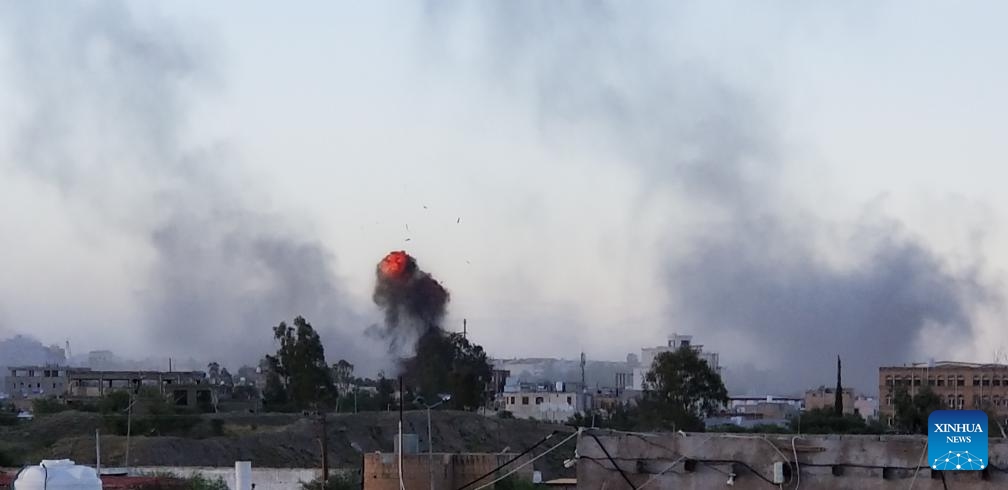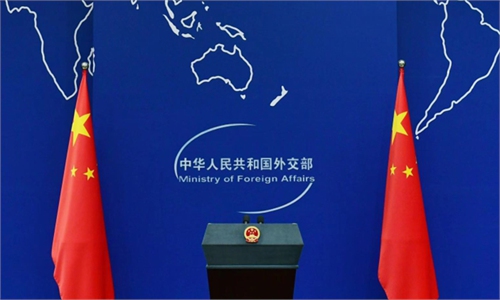Latest US airstrikes of Houthis complicate, prolong tensions in Middle East: experts

This photo taken by cell phone shows smoke rising following airstrikes in Sanaa, Yemen, Oct. 4, 2024. The United States Central Command (CENTCOM) said on Friday its forces conducted airstrikes on 15 targets in Houthi-controlled areas of Yemen. (Photo by Mohammed Azaki/Xinhua)
The US military on Friday reportedly launched strikes on a dozen Houthi targets in Yemen using both aircraft and warships, which Chinese experts believe is a dangerous and irresponsible move that adds fuel to the fire of the current tense situation in the Middle East.
The strikes, according to a statement from the US Central Command, targeted 15 sites containing Houthi offensive military capabilities.
Also on Friday, Hashim Sharaf al-Din, a spokesperson for the Houthi-run administration, said in a statement via al-Masirah TV that the US-British airstrikes "will not scare" the group, vowing more attacks against Israeli cities and "Israeli-linked" ships in the Red Sea and the Gulf of Aden.
The latest round of US attacks on Houthis may further escalate the situation and prolong the conflict in the Middle East which has dragged on for exactly a year, said Wang Jin, director of the Israeli Studies Program and Center at Northwestern University in Xi'an.
"It seems that Houthis now view the conflict with Israel and the US in the Red Sea as its priority. In the past, the conflict was mainly centered around Israel and Palestine, but now with the conflict between Israel and Lebanon and between Israel and Syria, the intensity and scale of conflicts in the region will escalate," Wang told the Global Times.
On September 27, Houthi targeted the Israeli cities of Tel Aviv and Ashkelon along with three US destroyers in the Red Sea with missiles and drones in support of Gaza and Lebanon.
Earlier this year, the US and UK conducted several rounds of joint airstrikes, targeting not just launchers but also Houthi infrastructure.
"The root cause of the tit-for-tat between Houthis and the US is the Israel-Palestine conflict. As long as the conflict does not end, there will be no peace in the Red Sea, and the fundamental way to solve the issue is to push forward a ceasefire rather than striking the Houthis. It has been proven that the US has achieved little but exacerbated the Middle East situation," said Ding Long, a professor at the Middle East Studies Institute of Shanghai International Studies University.
The new phase of confrontation between Palestine and Israel in Gaza since October 2023 has opened Pandora's Box in the Middle East region, which witnessed confrontations between Israel and surrounding countries.
On Thursday, US President Joe Biden said he did not believe there will be an "all-out war" in the Middle East. He stated that such a war could be avoided but more needed to be done to ensure that.
Ding told the Global Times that the origin of the Middle East tensions is the US' partiality in the conflict and its obsession with using force, which has made it difficult for international mediation efforts to achieve any meaningful results.



